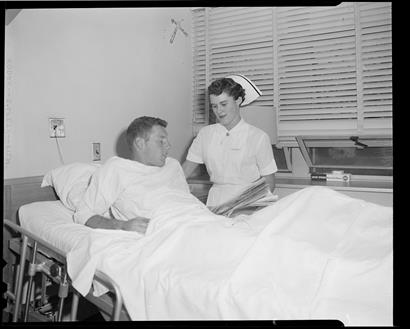People suffering from the most serious mental illnesses should get treatment. Yet as Jonathan Martin points out in The Seattle Times last fall, “For every one person in a public or private psychiatric bed in Washington, there are 3.1 people with serious mental illness in the state’s jails and prisons. Nationally, the ratio is 3.2 to 1. And that is a crime.”
A related problem is the so-called “warehousing” of mentally ill patients in emergency rooms and hospitals.
 Martin’s article shows that Washington state isn’t alone. Back in 1955, he writes, there was one psychiatric bed for every 300 Americans—but today, there’s just one bed for every 3,000 people. And Washington is at the bottom of the list in beds per capita.
Martin’s article shows that Washington state isn’t alone. Back in 1955, he writes, there was one psychiatric bed for every 300 Americans—but today, there’s just one bed for every 3,000 people. And Washington is at the bottom of the list in beds per capita.
So it’s no mystery that instead of getting treatment in a place designed to do the job, people with serious mental illnesses are winding up in hospitals, jails and prisons instead.
Martin quotes Bruce Gage, the head psychiatrist for the state’s prisons, who explains the problem this way: “It used to be called deinstitutionalization. Now it’s called trans-institutionalization. We took everyone out of the state hospitals, and they pretty much, the same population, ended up in prisons and jails.”
Jails, while sometimes cheaper than psychiatric facilities, are certainly no place to treat illnesses.
Luckily, Washington state is taking steps toward reversing the trends.
As part of $35 million in funding for mental health, the Department of Commerce recently announced that $4.84 million in grants that are being combined with $3 million from other sources to add more space at short-term psychiatric facilities.
The beds are being funded in every corner of the state:
• Fairfax Behavioral Health – Monroe, $880,000
• Making a Difference in Community – Tacoma, $1.32 million
• Sunnyside Community Hospital – Sunnyside, $1.32 million
• Thurston Mason Regional Support Network – Olympia, $1.32 million
